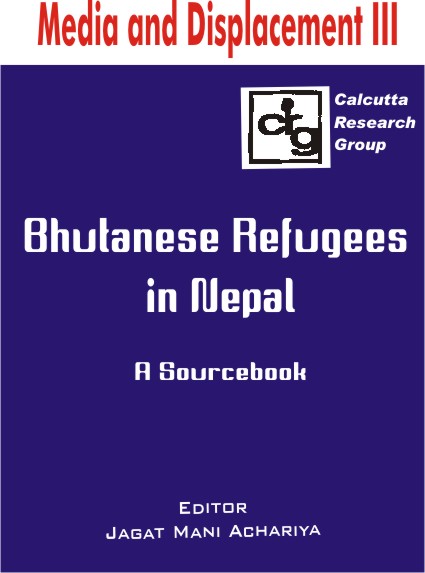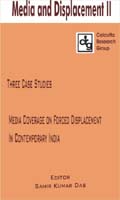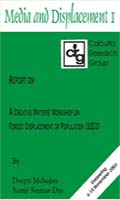| |
Media and Displacement
III
This is a collection
of creative writings (2004) by a victim community – the Bhutanese refugees
in Nepal. This publication marks a departure from the first two segments of
the programme in one significant respect. While those segments underline the
importance of keeping the watcher (media) under watch, this publication is
intended to be a sourcebook to help the discerning and socially committed
media practitioners in utilizing the writings of the victims in a way that
strengthens the communication capacity of the victims, and contributes to
the articulation of their rights and claims.
The publication of the anthology has been possible due to
the support of WACC, London. Edited by Jagat Mani Acharya.
|
|
 |
| |
Media and Displacement II
This publication
(2004) – an assemblage of three case studies conducted in the states of
Jammu & Kashmir, West Bengal and Assam respectively - reflects on the media
coverage on forced displacement of population in contemporary India. The
studies were part of the programme on ‘Media and Displacement’.
The three case studies were on Jammu and Kashmir, West Bengal, and Assam.
The publication has been supported by WACC, London. Edited by Samir Kumar
Das.
|
|
 |
| |
Media and Displacement I
This is a report
(2004) on the Creative Writers’ Workshop on Forced Displacement of
Population (2003) - perhaps the first of its kind in South Asia. It was held
as part of a programme on ‘Media and Displacement’. The first part of the
programme concerned with attempts at auditing on the basis of selected cases
the mainstream media and its coverage on forced displacement of population
from the perspective of human rights, justice and democracy. The other part
of the programme was concerned with bringing out a source book on the
creative writings of a particular community of victims. The creative
writers’ workshop deliberated on these two segments of the programme and
dealt at length with issues of creativity and objectivity, ways of seeing
and covering an event, the right to communication, victims’ right to
communicate, impact of technology on media behaviour, ethics and norms of
reporting and editing, narrative techniques, and other issues related to
writing.
The programme and the
publication have been supported by WACC, London. Edited by Deepti Mahajan
and Samir Kumar Das. |
|

|